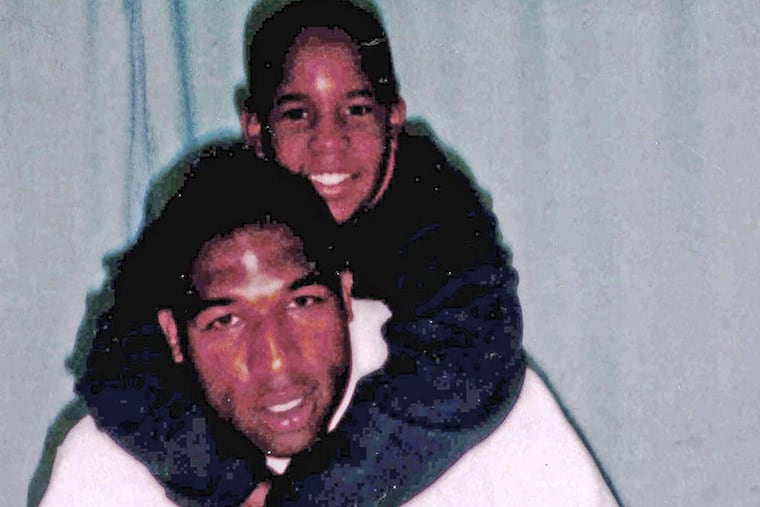Anthony Wright takes the stand, denies 1991 rape, murder of 77-year-old Nicetown woman
Anthony Wright returned to the witness stand Friday for the first time since 1993 to again deny that he had anything to do with the 1991 rape and murder of a 77-year-old Nicetown woman.

Anthony Wright returned to the witness stand Friday for the first time since 1993 to again deny that he had anything to do with the 1991 rape and murder of a 77-year-old Nicetown woman.
He also denied ever having confessed to the crime.
Wright's testimony mirrored that he gave a Philadelphia Common Pleas Court jury as a 21-year-old. That jury did not believe him, and he was convicted of first-degree murder and sentenced to life in prison.
On Friday, Wright, now 44, again tried to convince a jury of his innocence in a retrial won after DNA testing of sperm found in Louise Talley's body proved Wright did not rape her.
Wright's lawyer, Samuel W. Silver, got to the point: "Did you kill Mrs. Talley?"
"No, sir," Wright replied.
"Did you rape Mrs. Talley?" Silver asked.
"No, sir," Wright replied.
"Were you ever inside Mrs. Talley's house?" Silver continued.
"Absolutely not," Wright said.
But the DNA testing that resulted in the retrial was ignored by Assistant District Attorney Carlos Vega, who vigorously questioned Wright for almost 90 minutes about the evidence that convicted him more than 20 years ago.
The veteran prosecutor returned again and again, with mock skepticism, to what he called Wright's incomprehensible claims: that he had signed an eight-page confession without reading it, and that he had been framed by witnesses.
"I just wanted to go home," Wright testified, explaining why he had signed the confession.
Wright said that after homicide Detective Manuel Santiago arrived at this mother's house on Oct. 20, 1991, he voluntarily agreed to go Police Headquarters to answer questions.
"He was very cordial the whole way," Wright said, until they got into a homicide room and Santiago told him he had witnesses who said - and evidence that indicated - Wright had raped and stabbed to death the victim inside her home at 3959 Nice St.
After three to four hours of accusations and denials, Wright said Friday, Santiago left and two other detectives came in. He said he was handcuffed to a chair, and one detective held his neck while the other put his face so close their noses touched.
Wright said one detective threatened to "poke his eye out" and sexually assault him.
"I never told him anything," Wright testified.
Wright said Santiago and another detective then reentered the room and presented him with eight handwritten pages, and told him to sign and initial them "if he wanted to go home."
Wright said he signed.
"So you say you signed all kinds of papers with all kinds of writing on them and you think they're going to let you go home?" Vega asked. "Do you think that when someone cuffs you to a chair and threatens you with violence that they're going to let you go home?"
Yes, Wright replied, because "I knew I didn't do anything."
Wright was the main witness in the second day of the defense case that rested at day's end.
Vega and co-prosecutor Bridget Kirn told Common Pleas Court Judge Sandy L.V. Byrd that they want to present two rebuttal witnesses when the trial resumes Monday.
But Byrd told the jurors before they left for the weekend that on Monday they will hear closing arguments and begin deliberations.
Wright was convicted in 1993 based on his confession and the testimony of two men. One said Wright admitted the slaying to him; the other testified that Wright asked him to be a lookout while he went inside Talley's house.
Three teenage boys also testified they saw Wright loitering outside Talley's house, and two witnesses said they saw him go inside.
The two witnesses have since died. All three teenage witnesses from 1993 testified in the retrial and recanted their original statements.
In 2014, the District Attorney's Office agreed to a new trial for Wright after his legal team, including the Innocence Project of New York, presented evidence - validated by the city police's own DNA analysts - that proved Wright could not have been the man who raped Talley.
jslobodzian@phillynews.com 215-854-2985 @joeslobo www.philly.com/crimeandpunishment